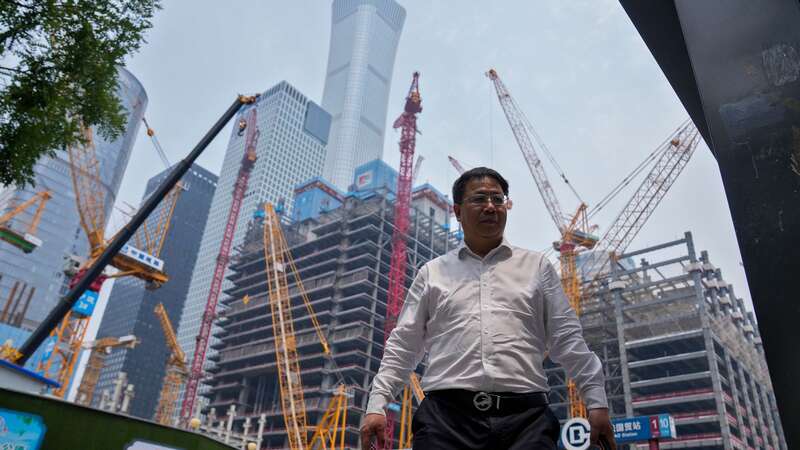
China's central bank decided to keep a key lending rate unchanged on Monday, despite signs of ongoing weakness in the country's manufacturing and real estate sectors, according to data for May.
The rate for 1-year medium-term lending facility loans, which serves as a benchmark for other lending rates, remained at 2.5%. This decision was in line with expectations, as Beijing has been focusing on directing spending towards high-priority areas such as high-tech industries, rather than cutting already low interest rates.
On Monday, the government reported a 5.6% drop in factory output in May compared to the previous year, a slowdown from April's 6.7%. Analysts pointed out that this could be partially due to more working days this year compared to last.
Investments in property fell by 10% year-on-year, and home sales plummeted by 30.5%, indicating that efforts to reverse a slump in the real estate market have not yet taken effect. Home prices in major Tier 1 cities like Beijing and Shanghai dropped by 3.2%.
This downturn in the property industry comes after a crackdown on excessive borrowing by property developers several years ago. This led many to default on their debts while struggling to deliver apartments that buyers had already paid for, impacting contractors and suppliers of building materials, appliances, and other household goods.
 I'm a property expert - my guess for the cheapest time to buy a home this year
I'm a property expert - my guess for the cheapest time to buy a home this year
"This data was certainly on the disappointing side and may ring some alarm bells, as May's policy support package has not yet translated to a slower decline of housing prices, let alone a stabilization," commented Lynn Song, chief economist for Greater China at ING Economics.
The economic downturn and job cuts during the COVID-19 pandemic, along with dropping house prices a key investment for most Chinese households have made many in China reluctant or unable to spend, draining another vital source of business activity from the economy.
"Although the external environment is complex and changeable and the domestic economy is also facing some troubles and challenges, the fundamentals of economic recovery and long-term improvement have not changed," said Liu Aihua, spokesperson for the National Bureau of Statistics, during a press briefing in Beijing.
She highlighted increasing retail sales and investments in various high-tech sectors as indicators of positive development. Liu mentioned that initiatives aimed at encouraging Chinese families to recycle old appliances and exchange their cars for new, electric models are contributing to a rebound in consumer spending.
Online product sales, which represent roughly a quarter of total retail sales, climbed by 11.5% in May, while household appliances and "audio-visual goods" like TVs saw a nearly 13% increase in sales during the same month. Chinese buyers have also gone back to car dealerships, with vehicle sales up 8.3% year-on-year to almost 11.5 million units in January-May, the China Association of Automobile Manufacturers announced last week. Auto sales rose 1.5% in May.
"Buying capacity and consumer confidence needs further improvement, but there are many favorable factors supporting continued growth of the consumer market," Liu said. He added that there would be more policies to bolster the struggling property market, following actions to slash mortgage rates and down-payment requirements for some home purchases, among other recent interventions aimed at making sure that buyers are able to secure the properties they've bought.
"We must also see that the implementation time of some policies is still relatively short," Liu said.
Read more similar news:
Comments:
comments powered by Disqus

































